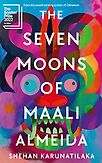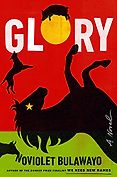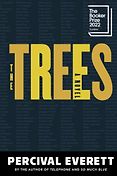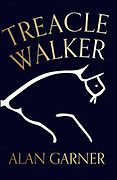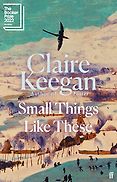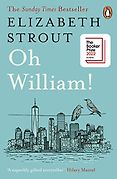It’s lovely to have you here to discuss the 2022 shortlist for the Booker Prize, which celebrates the best novels published over the last year. Having waded through this year’s submissions, do you feel it’s been a vintage year for fiction?
It difficult for me to say, as in no previous year have I read so many novels. So I can’t compare the year of fiction, as a whole, with other years. But I do think it’s a vintage year in terms of the shortlist. Looking across the 170 books that were submitted to us, I can’t believe there could have been a better time to understand the preoccupations of the world through what people were writing about. Through those books, one can engage with the concerns, the hopes, the worries, the dreams of people all around the world, writing in English—and in so many different kinds of English.
Did you notice any trends among the novels submitted for the Booker Prize in 2022?
The first thing that struck me—and not just me, but the other judges too—was the different ways in which English can be used and is used by people all around the world, to articulate different ways of thinking. There’s been a great concern about the dominance of English as the world language, the idea of a hegemonic, rather tyrannical, presence of English. But far from being this strait-jacket, uniform, homogeneous force, you realise the wonderful openness of English to reflect so many different ways of understanding the human predicament. I think we all felt that.
“These are six books that we want to recommend to people to read and re-read”
Otherwise the trends were what you might expect: there were a great many novels about people living in between two cultures or traditions. Many novels looked at the impact of migration even after several generations. And, of course, the pandemic was often present—the impact of isolation. There was also a large number of books about the disintegration of society, either due to economic or political disruption, or climate change, or indeed disease. Those were the themes that turned up again and again, and that, I think, is hardly surprising. It’s what people have been thinking about a lot around the world in the last few years when these books were written.
Let’s start with Glory by NoViolet Bulawayo, a fable-like satire of Mugabe’s Zimbabwe. Could you tell us more about it, and what the judge’s admired?
One of the strange things about the Booker Prize is that there are not fixed criteria. The judges have to develop their own criteria, allow them to evolve through conversation. One thing we were particularly struck by was the capacity of an author to create another world, a universal world that we could enter, simply through the use of words.
Glory is such a world. The way Bulawayo uses set forms of words, or repetition, a sense of incantation that takes you into a different rhythm of thinking and living, which matches, of course, the otherness of presenting the history of Zimbabwe through fabular animals. Using animals to tell what is, in many ways, a fairly straightforward political history of Zimbabwe over the last 40 years, allows a very high degree of emotional engagement by the reader; we inhabit the space emotionally, as well as historically.
And the animals do something very remarkable, I think, because they remove the question of race. The story becomes simply about how living beings treat each other. And that we found very powerful.
This year’s shortlist feels almost kaleidoscopic in its creativity and imagination. And humour. A lot of the 2022 shortlisted novels are funny.
I imagine different judges will value different things in different years. The five of us, as I said, valued use of language to create a universe, but also a capacity to mix humour into the narrative. One of the striking things about the shortlist is that four of the books are very tragic political narratives of cruelty of and injustice, or war, or killing. And yet, those four books have very sharp moments of real humour. And that too heightens the emotional engagement of the reader.
Does that lead us to Percival Everett’s The Trees? It’s an investigation of gruesome, racially-motivated murders in Mississippi, but one reviewer described it as “howlingly funny”. Would you agree?
Yes. That’s one of the most powerful elements of this book—the disjunction between the horror and the humour. Again, this is a historical narrative, beginning with the killing of Emmett Till in 1955, and addressing racial oppression in the United States, but with wonderful moments of fantasy, mysticism, magic, mixed with knockabout farce.
That’s a heady brew.
It’s disconcerting, while you’re thinking about the long tradition of lynching in the South, to have these Keystone Cops moments. But it does intensify the emotional response and keeps you thinking on every page about what it is really like to live with this kind of systemic injustice over centuries.
Next of the six novels on the 2022 shortlist is Treacle Walker by Alan Garner. What can a reader expect?
Two of the books are about an individual discovering who they are, and what they can become—Treacle Walker and Oh William!. The other four are big historical narratives.
Treacle Walker is a mysterious tale of a young boy, as he tries to make sense of the world around him. The obvious parallel is The Little Prince. He is a child alone, and you never know why. There’s no particular sense of the child having been abandoned, but that child is living in a universe of his own. And into that universe comes the mysterious figure of Treacle Walker, who shows him how to see the world, how to think the world. And how much of the world simply cannot be understood.
Get the weekly Five Books newsletter
What is wonderful about the book is that it’s a journey through a landscape that cannot be grasped by reason alone. It’s about enabling the child to set off on his own journey—there’s a marvellous moment at the end, when the boy himself takes the reins of Treacle Walker’s cart and sets off on his own. It’s a bildungsroman, to use the pretentious literary term. But what I like about it is that the start point and the end point of the world can never be fully understood. We don’t understand the world in which we live and have to live, and every child is alone in confronting this world.
But I don’t know if that’s what the book is about at all. If we’re talking about worlds made by language, then the supreme example of that, in these six books, is Treacle Walker. It’s a world of enchantment that goes far beyond our rational understanding.
This feels like an obvious point to make, but how can you pit books like Treacle Walker and, say, The Trees, against one another? Each has such a different character, such a different soul. How can you weigh and measure them?
Don’t think of it as singling out the ‘best’ work of fiction, among these six possible titles. What we’re saying is that these are six books that we want to recommend to people to read and re-read. These are books that repay close reading. These are fictions that will enrich your life. The point of the Booker Prize is to proclaim the significance of fiction, why it matters. It’s a serious business. Of course, we read for enjoyment. But enjoyment often is, as you know, the result of hard work or training. We can work at enjoyment, to enjoy even more.
None of these are ‘easy’ books, but they are all, I believe, very enjoyable. What we were looking for was to be able to say that these are books that will enrich your life if you give them time and attention.
I’m going to move us on to our next novel shortlisted for the 2022 Booker Prize, The Seven Moons of Maali Almeida by Shehan Karunatalika. I saw this described, very intriguingly, as ‘afterlife noir.’ Can you tell us more?
Yes. The hero of this book is already dead. In the afterlife, he’s given a chance to revisit moments and places from his life, which took place during the Sri Lankan Civil War, in which the hero—who was a photographer—was ultimately killed. It’s a fantasy of a dead figure coming back, revisiting and understanding what happened, and also watching what the significance of their own life was. So at one level, it’s an enormous subject, almost a theological issue—what did this person do with their life? what does it add up to?—but it’s done, again, with enormous humour. The hero of the book is addressed as ‘you’, which engages the reader in a very interesting way.
Rather like Everett’s book, there are moments of real horror in this, when you realise what brutal interracial murderous hostilities lead to, and also wild humour. At the end, you’re left with a view of what a life has achieved, because the man’s photographs document what happened in the civil war. So it’s an attempt to draw up a balance sheet to write an account of a life, but in this wonderfully fantastical, hilarious, spine-chilling way.
“The device of an afterlife ghost story allows an outsider to engage emotionally”
As with The Trees, as with Glory, you’re aware that all this is real, it has been happening in our lifetime—recently. People have been murdered like this, killed like this. And somehow, we have to sort out what all this means. This is our world. How do we engage with it?
As with Everett’s humour, as with Bulawayo’s fabular fantasy, here in Sri Lanka the device of an afterlife ghost story allows an outsider to engage emotionally and to start thinking: What is this really about? What does it mean?
Yes. Of course, there’s a great deal of very high quality long form reporting from conflicts overseas. But I think it doesn’t always get the audience it deserves. Readerships outside of the countries involved don’t always engage fully. So perhaps fiction is the way of reeling people in. Emotionally, as you say.
Four of these books are about long histories of brutal, cruel injustice. The average British reader knows about all of them through reporting. But fiction enables us to live for a time in that world, and to realise something of what it must mean to live in those circumstances, in a way that I don’t think even the best reporting allows. It’s a parallel mode of informing and engaging, isn’t it?
Claire Keegan’s Small Things Like These is the fourth of those four novels. Can you talk us through it?
Absolutely. At the centre of this book is the horror of the mistreatment of unmarried mothers and their babies by the Catholic Church in Ireland. It’s set in the 1980s—so recently, but before this scandal became known. The book, of course, is motivated and driven by the horror of what is being done to these women and their babies. But Keegan’s tone is as dispassionate as one could possibly imagine. There’s something absolutely merciless in that measured tone—it’s so much more powerful than an emotional denunciation of the cruelty of what is happening.
We discover what is going on through the eyes of a local coal merchant, in a small town in Ireland. There are two elements. Firstly, the cost of moral courage: what is the role of the individual when he or she sees something unjust taking place, but when denouncing it will have enormous consequences, not just for them but for their family? The focus is not on the cruelty of the Church and the people in the Church, inflicting suffering on the young women and their children. It’s on the complicity of the whole community; we discover that almost everybody knows that something is going on. But almost everybody decides that it’s better not to do anything about it.
It’s a wonderfully subtle moral dilemma. Where the Sri Lanka and United States novels were violent and funny and hilarious and extreme and exuberant, Keegan’s prose is restrained, and every bit as powerful emotionally.
Keegan and Garner’s books are very slim; they’re basically novellas. Can these shorter books hold their own against the, literally, heavyweight titles?
The author chooses a form and a length and a shape, and the question is: how much can the shape hold? I don’t think anybody reading Treacle Walker or Small Things Like These will doubt that the content of those books is as big as Glory or Seven Moons. All of them are addressing fundamental questions of life and death, absolutely at the deepest level.
The question is: can you hold something as big as the criminal horror of the Magdalene Laundries in a format as small as Claire Keegan’s? Obviously the judges felt that you can, and that that book can take its place beside much longer books about the Sri Lankan Civil War or the recent history of Zimbabwe.
Thank you. That brings us to the final novel on the 2022 Booker Prize shortlist: Elizabeth Strout’s Oh William!, which marks the return of her beloved Lucy Barton. Can you tell us a little about why you’ve chosen to include it on the shortlist?
The first reason was, simply, the way that it’s written. Within a page or two, has this author taken you into their world? Elizabeth Strout’s prose is so calmly, naively beguiling. The apparently simplicity of her language, the informality of the address to the reader takes you immediately into a dialogue with a character. What we admired enormously was the complexity with which the reader comes to see how little Lucy understands herself. The process of watching somebody in late middle age, rethinking their understanding of who they have been, who they are, and what they might be.
Five Books interviews are expensive to produce. If you're enjoying this interview, please support us by donating a small amount.
To an extent, it seems quite close to Treacle Walker, that is, it is about an individual alone, sorting out who they are, and learning to see the world and themselves. The disjunction between Lucy’s assumption that she sees what’s going on, and the reader’s growing awareness that she doesn’t know either herself or the rest of the world. That is a very powerful mix.
I think it’s a very strong shortlist.
One thing we were looking for was that the author had accomplished their purpose within the terms they had set themselves. We felt that with these six books, that was resoundingly true in every case; it was magnificently fulfilled.
Part of our best books of 2022 series.
Interview by Cal Flyn, Deputy Editor
September 25, 2022. Updated: January 16, 2025
Five Books aims to keep its book recommendations and interviews up to date. If you are the interviewee and would like to update your choice of books (or even just what you say about them) please email us at [email protected]

